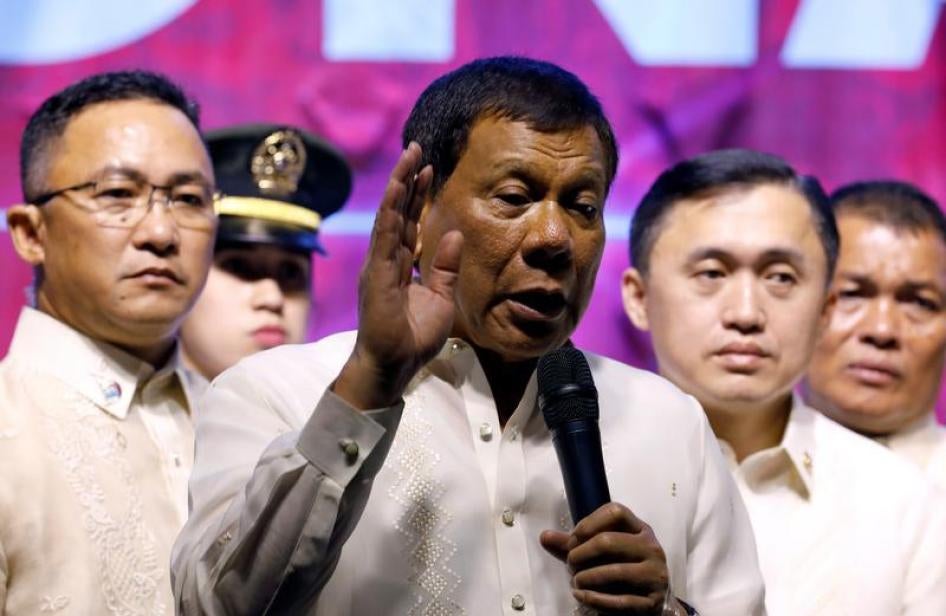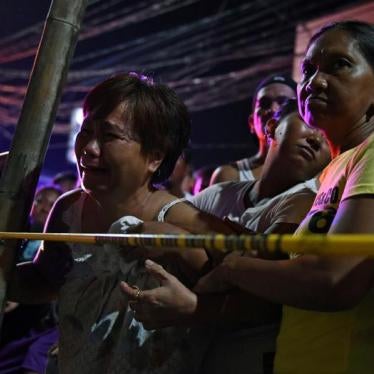Philippine President Rodrigo Duterte threatened airstrikes on schools for indigenous children on the southern island of Mindanao that he alleged are teaching “subversion [and] communism.”
“I will bomb those schools,” Duterte said on Monday. “I will use the Armed Forces, the Philippine Air Force…because you’re operating illegally and you’re teaching the children to rebel against government.”
Duterte issued the threat at a press conference minutes after his State of the Nation Address, in which he vowed to continue his “war on drugs,” a murderous campaign in which the police and their agents have killed thousands of suspected drug dealers and users in cold blood. His tirade against “subversive” schools that teach indigenous Lumad children came after he declared an end to the peace negotiations with the Communist New People’s Army (NPA), which has been waging a Maoist insurgency for nearly five decades and, according to the government, has made tribal areas in the countryside its base of operations.
By calling for an attack on schools, Duterte is directing the military to commit war crimes. International humanitarian law – the laws of war – prohibits attacks on schools and other civilian structures unless they are being used for military purposes. Deliberately attacking civilians, including students and teachers, is also a war crime.
Indigenous-run “peoples’ schools” have long been targets of the military and paramilitary forces, which accuse them of being “training grounds” for the NPA. Government security forces in Mindanao have largely escaped accountability for such abuses.
Duterte should publicly retract his threat of violence against tribal schools before the military acts on them. And although the Philippines has legislation and Department of Education guidelines prohibiting military use of schools, they are often ignored. Instead of denying Filipino children their right to safe education, Duterte should sign the Safe Schools Declaration, an inter-governmental political commitment for the protection of students, teachers, schools, and universities from attack during times of war. Sixty-seven countries have now signed the declaration. It’s clearer than ever that the Philippines should do likewise.
“I will bomb those schools,” Duterte said on Monday. “I will use the Armed Forces, the Philippine Air Force…because you’re operating illegally and you’re teaching the children to rebel against government.”
Duterte issued the threat at a press conference minutes after his State of the Nation Address, in which he vowed to continue his “war on drugs,” a murderous campaign in which the police and their agents have killed thousands of suspected drug dealers and users in cold blood. His tirade against “subversive” schools that teach indigenous Lumad children came after he declared an end to the peace negotiations with the Communist New People’s Army (NPA), which has been waging a Maoist insurgency for nearly five decades and, according to the government, has made tribal areas in the countryside its base of operations.
By calling for an attack on schools, Duterte is directing the military to commit war crimes. International humanitarian law – the laws of war – prohibits attacks on schools and other civilian structures unless they are being used for military purposes. Deliberately attacking civilians, including students and teachers, is also a war crime.
Indigenous-run “peoples’ schools” have long been targets of the military and paramilitary forces, which accuse them of being “training grounds” for the NPA. Government security forces in Mindanao have largely escaped accountability for such abuses.
Duterte should publicly retract his threat of violence against tribal schools before the military acts on them. And although the Philippines has legislation and Department of Education guidelines prohibiting military use of schools, they are often ignored. Instead of denying Filipino children their right to safe education, Duterte should sign the Safe Schools Declaration, an inter-governmental political commitment for the protection of students, teachers, schools, and universities from attack during times of war. Sixty-seven countries have now signed the declaration. It’s clearer than ever that the Philippines should do likewise.









